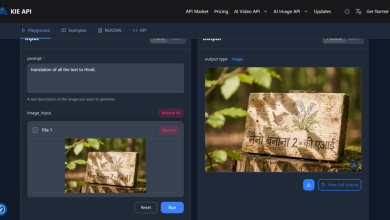
For years, when people heard the phrase “AI in customer experience,” their minds went straight to chatbots, those scripted and often frustrating tools that answered questions with canned responses and rarely delivered real value. That era is fading fast. Today, we are developing something much bigger: AI-powered personalization that transforms the customer journey from transactional to truly tailored.
From Reactive to Proactive
The old model of customer service was reactive. A customer had a problem, they reached out, and a chatbot or hopefully human agent tried to resolve it. Frankly speaking, most people dislike those historically annoying chatbots that can’t really solve your problem when all you want to do is reach a real person. Now, AI is enabling businesses to be proactive. Advanced systems analyze behavior, anticipate needs, and surface relevant offers or support before the customer even asks.
Consider a subscription-based business. AI can spot when a customer is likely to cancel based on engagement patterns and automatically redirect outreach strategies, recommend features, or offer promotions to keep them engaged. Instead of waiting for churn to happen, businesses can now intervene early, improving retention and creating long-term loyalty.
The Personalization Imperative
Customers today do not simply want products or services but rather they expect experiences designed specifically for them. For example, across the travel and hospitality industry, it’s clear that beyond the destination itself, the experience is the biggest driver of decision-making. That trend is extending into AI-driven personalization across the board. Basic greetings such as “Hello, [First Name]” are dying out faster than pagers. We are quickly creating dynamic interactions that reflect real context based on browsing history, purchase timing, location, and even local weather.
Imagine booking a fishing trip online. Instead of simply confirming your reservation, the system could also recommend the best gear for the season, provide tide charts for the week, suggest nearby restaurants, and bundle add-ons like lodging or guided tours to the viewer’s specifications. That is the power of AI at scale, creating a customer experience that feels intuitive, timely, and personal. Businesses who adapt quickly will have a unique competitive advantage, and those who don’t will start to become left behind.
This shift has measurable benefits. McKinsey & Company reports that companies with strong personalization strategies drive 40 percent more revenue from those activities compared to their peers. Customers who feel understood and supported are more likely to buy again and to recommend a brand to others.
Beyond the Chatbot: The New Front Door to Business
Chatbots will not disappear but rather they will evolve. Instead of being the endpoint, they will serve as an intelligent interface connected to a deeper AI ecosystem. Behind the scenes, machine learning models and natural language understanding will connect the dots across CRM, marketing, operations, and inventory.
For example, the AI-powered chatbot at Digital Sportsman functions as a full-time assistant, fully customized for each business operator. Instead of clicking through an order that might take several minutes, an operator can simply type a command such as, “Book Danny for next Thursday,” and the system processes the entire order in seconds. Communications are sent out, resources are reserved, and the operator can move on without any friction.
This same technology is also being extended to customers. It enables highly personalized responses with interactive results. A customer might ask, “Are you available next Thursday?” and the chatbot can guide them seamlessly through the booking, confirmation, and payment process vs. spitting out some canned responses of the past when the robots weren’t this smart. In other words, the same conversational flow that saves time for the operator also creates a smooth, personalized experience for the customer.
The result is a seamless journey where every touchpoint feels consistent and intuitive, whether a customer is interacting through a website, an app, or in person with a sales representative who is armed with AI-powered insights. In this model, the chatbot is no longer a static tool. It becomes the doorway into an entire network of personalization.
A Competitive Edge and a Necessity
This shift is not just about delighting customers. It’s about survival. Businesses that fail to adopt AI-powered personalization will quickly fall behind. A recent Salesforce survey found that 73 percent of customers expect companies to understand their unique needs and expectations, and nearly 80 percent are more likely to purchase when experiences are personalized.
In competitive industries, the difference between staying relevant and fading out often comes down to who is delivering smarter and more human-centered experiences. Personalization, powered by AI, has become both a differentiator and a necessity.
The Road Ahead: Balancing Innovation and Trust
As with any technology, businesses must balance innovation with trust. Customers want personalization, but not at the cost of privacy. The future of AI in customer experience depends on transparent data practices, ethical AI use, and clear communication of value.
Companies that can show customers how their data is being used to improve the experience, and ensure that those improvements are tangible and beneficial, will be the ones that earn lasting trust. Those that fail to do so risk alienating the very audiences they are trying to serve.
Final Thoughts
AI is both changing and becoming the customer experience at the same time. It will continue to ease into everything we do in business, and adoption will be much faster than that of the Internet era. From anticipating needs to delivering hyper-personalized interactions across every channel, AI is redefining the relationship between businesses and their customers.
The question for business leaders is no longer whether they should embrace AI-powered personalization, but how quickly they can move to make it the core of their strategy. Don’t just undertake an AI project for the sake of doing AI; integrate AI into your organization at every level. The companies that act with urgency, invest with vision, and build trust with customers will not just participate in this transformation. They will lead it.





